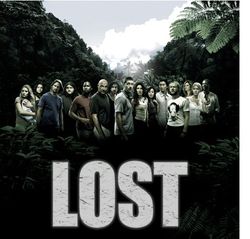
There is a marketing lesson in that, as there is in several other choices the show’s producers and marketing teams have made. Here are a few things that the show does and the marketing lesson that you can learn from them:
- Share the backstory. As I mentioned above, giving viewers a look at where the characters come from gives each of them a sense purpose and allows you to feel more empathy towards them. As any good screenwriter knows, the point isn’t for you to love every character – it’s for you to feel something towards them. Once you do that, you’re engaged in the show. Marketing Lesson: Make sure you share the story behind your brand so you can give people a reason to believe in it.
- Untangle the complexity. One of the smartest things the show does is they feature a simplified 3-5 minute version of every episode untangled (see video below in this post). These descriptions are from the outside looking into the show, referring to a character who wears too much eye makeup as “eyeliner” and poking fun generally at the actors in the show and the way they portray their roles. Alongside this irreverance, Lost Untangled explains the plotline of every episode in a way that allows you to understand it despite the complexity of time shifting, multiple characters and hidden clues. Marketing Lesson: If you have something complicated to sell, get creative about how you can simplify it.
- React to your critics. Early in the show, the creators were criticized because they got people emotionally invested in the core characters of the show, and then introduced new characters and shifted the focus. Many viewers were confused because the characters they knew had essentially vanished. Though this was presumably part of the broader story arc, the producers recognized that viewers needed some connection to the characters they already loved, and found a way to bring that back – while still progressing their story and introducing the new characters they had planned to. Marketing Lesson: Don’t ignore your critics, but don’t change your strategy because of them either.
- Have a finite ending. As the trailers after last night’s finale noted, next year will be the final season of Lost. For a top rated show, it cannot have been an easy decision to let the show end at what seems to be the height of its popularity – yet having a finite end is important for both audiences and for the writers of the show. Everyone knows that the show is leading toward something. There is a sense of anticipation and excitement, as well as urgency to watch. It’s not a soap opera where people go into comas, die, wake up and go on again. Marketing Lesson: Having an ending is important – even if it’s just a campaign that ends so you can start a new one.






WE RECENTLY REMOVED COMMENTING - LEARN WHY HERE >